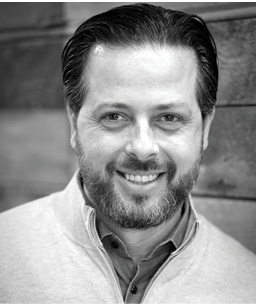The Onus Is on the Company: How to Make a Great Hire in 2020

Article by Cecilia Meis
The hiring process was never easy per se, but it did have a common routine that employers generally followed: Post a job ad; sift through the candidates’ resumes and cover letters; conduct interviews to dig further into experience, character, and personality; hire the candidate who checks the most boxes.
Not anymore. The changing nature of the business landscape in 2020 has altered how people look at potential employers. No longer are benefits packages the be-all and end-all. Employees want to see the human beings behind the operation. In fact, a 2017 survey by global recruiting firm Hays found that 71 percent of employees are willing to earn less to find the right company culture.
What are the company’s values? Are those values lived out in the company’s day-to-day operations? What is the company’s culture like? How are employees treated? Does the company offer non-financial benefits like flexible hours or remote work? Can I bring my dog to the office? Is there paternity leave? These are the kinds of questions today’s employees want answered.
And hiring is expensive. Not only do many job posts themselves cost money, but if you use a resume-screening software or service, that has a price tag, too. Subtract time for interviews, onboarding, and training, you’re looking at several thousand dollars minimum. A study from the National Association of Colleges and Employers pinpoints the cost of the average new hire at $7,645.
Neither employees nor employers want to waste their time and money on the wrong fit. When it comes to getting the right fit, the onus lies on the company to create a great employee experience. Start with these tips to offer an experience that gets both sides excited for the future:
1. Use the Resources You Already Have
Many companies overlook their most valuable recruiting resources: their current employees. Consider internal promotions before looking to the public talent pool. If you do have to hire externally, cast a wider (and more personal) net by involving relevant team members in the hiring process. Ask for referrals: Personal recommendations can go a long way on either side of the hiring equation.
2. Look Beyond the Skill Set
Most hard skills can be taught, but soft skills are notoriously harder to teach. That’s why it’s a good idea to focus interviews on things like a candidate’s perseverance, entrepreneurial spirit, communication, teamwork, growth mindset, and kindness. These are qualities that can take your business to the next level.
Personality matters a lot in hiring. If your startup is looking for go-getters, then a candidate focused on job titles and office perks might not be the right fit.
3. Be Candid
We’ve all experienced interviews that have felt almost robotic. You learn about the role, answer some generic scenario questions, and list your work history with a polite smile plastered on your face. These conversations don’t help anyone.
The hiring process is a two-way street. If you hope to have an honest discussion that gives both parties a clear understanding of each other, you have to be as candid with your candidate as you hope they’ll be with you.
4. Remember Your Role
After conducting the interview, ask yourself three questions: What is my understanding of this person’s strengths and weaknesses? Given that understanding, what would this person need in order to succeed? Who would do what to facilitate those needs?
This goes beyond the onboarding and training process. Consider how this person will fit into your team. Where do you see them growing, and how can you help them get there? Remember, you’re not hiring a position. You’re hiring to fill a hole on an interdependent team.
5. Consider a Trial Period
The traditional rules of employment are long gone. Many companies now use trial periods to give both parties a chance to make sure the match is a good one. This trial period can be as small as a single project on a contractor basis or a 90-day contract with the option to renew for a traditional full-time contract.
6. Live Up to Your Promises
Don’t oversell. If you don’t believe in or have the funds for a weekly happy hour or bring-your-dog-to-work policy, don’t sell such things as new benefits to get a top candidate. You’ll end up with a sour new hire and a sullied reputation. The small things might not be deal-breakers, but they can quickly foster mistrust and resentment, which certainly don’t breed a sellable company culture.
Pro tip: Regularly check Glassdoor to see what past employees and candidates think about you, the company, and the hiring process. You might just find some valuable insight.
What the Entrepreneurs Have to Say
Speaking of valuable insight, we asked three hiring pros about their experiences. Here’s what the had to say about making great hires:

A common reason employers don’t hire inexperienced candidates is that these candidates don’t have job-relevant experience. Our team actually sees this lack of experience as an attractive quality, because the candidate can join us with a blank slate, and we can train them in our processes. Many of our highest-performing team members actually started with relatively little experience in the field we hired them for.
Important: This hiring strategy does not mean we will hire anyone. Instead, we focus on hiring for soft skills like great communication, accountability, and adherence to deadlines.
One of the most successful ways to attract and retain top candidates is to offer remote employment opportunities. Providing remote work gives these candidates the flexibility to commit to a full-time or part-time role with your organization in a way that matches their preferred lifestyle.
Finally, it’s hard to hire good people. Even the good people aren’t operating at 100 percent all the time. You may be getting them during a slump, or maybe you aren’t providing the right leadership to help them reach their full potential.
To have your best chance at hiring top candidates, consider test projects. You can hire someone as a contractor for 30-90 days. See how they perform on those projects and work with your team. At the end of the period, decide whether you want to make a full-time offer.

Hire a personality, never a resume. No one has training or an education in doing what we do. Every business operates differently. Each one reflects the personalities and values of its founders. Our most successful team members were hired based on the alignment of their character with our values and energy.
We hire driven people with a hunger to grow professionally, earn more, and connect with a mission that speaks to them. We intentionally select people based entirely on personality, albeit without a formal personality test. Our youngest employees are proving to be our most valuable. Don’t get me wrong: Wisdom at the top helps, but drive in the middle is essential.
Don’t discount millennials. They are an amazing generation. They have broken all of our old molds. In my experience, this generation works intensely, contributes creatively, and does not spend a minute killing time if they believe, if they are honored, and if they are shown a path to growth. We don’t simply hire them, we emulate them.
Looking at our team members who have lasted the longest and contributed the most, two character traits are obvious: resilience and dedication. Startups are hard. Everyone wears multiple hats. Millennials demand work/life balance, but man do they work.

I remember sitting in interviews and answering the oddest questions, like, “What type of animal would you be?” That was my experience, and I thought that was a good interview style.
After a few bad hires, I began to interview people as if we were going to get married. I carry on more of a conversation-style interview for visible positions and a task-oriented interview for production positions.
In both instances, I ask candidates about their favorite and least favorite kinds of people to work with. Asking questions about others allows me to see past the candidates selling themselves. You would be amazed at how quickly someone will let their guard down and say something like, “I can’t stand to work with idiots.” That answer lets me know they think too highly of themselves and will have issues working with others.
My psychology degree comes in handy with interviewing applicants. The most oddball question I ask is, “How do you feel about cleaning toilets?” This question lets me know whether they are willing to help the entire team and company succeed. I can’t stand the phrase, “That’s not my job.”
Hire slow and fire fast. Just because you really need someone doesn’t mean the first person you interview is the right person. That’s a hard lesson to learn when you are starting out. Hiring someone is like a marriage, and firing them is like a divorce. One can be done quickly and cheap, and the other takes a long time, causes emotional pain, and can be costly.
Versions of this article originally appeared on SUCCESS.com and in the in the July/August 2020 issue ofSUCCESS magazine.
Cecilia Meis is a full-time writer and editor based in Dallas, Texas. Besides SUCCESS, her work has appeared in Time Out Dallas, Rewire, Healthline and others. Outside of work, she plays beach volleyball; attempts home cooking; and is ardently working toward making her cat, Nola, Insta-famous.

